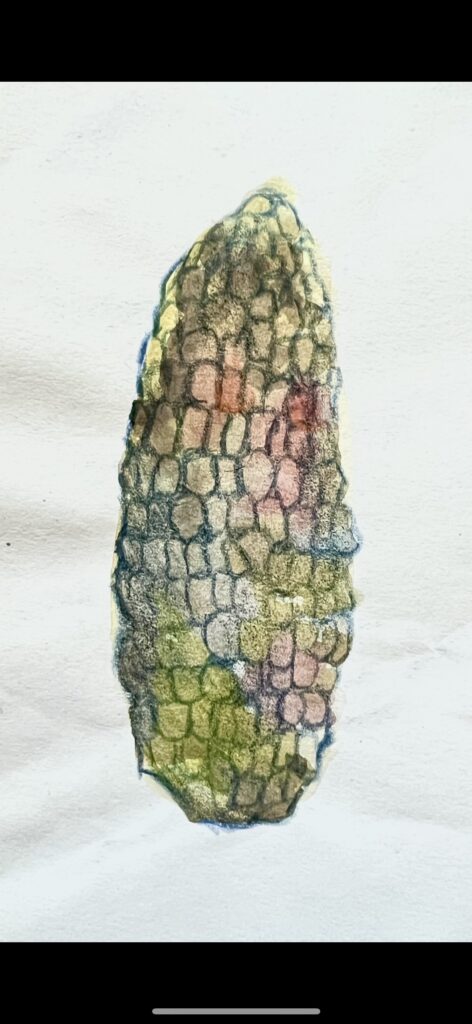One of my favorite memories I made while at SCSA was helping at different farms and learning about New Mexico’s most common irrigation system: Acequias. As humans, we fully depend on water to hydrate and grow food, and our societies have settled and moved where the river takes them or where rain clouds move. Acequias, community-operated irrigation canals, show us the way that water connects people and changes our relationship to Earth. Systems like acequias actively defy the individualistic form of thinking, placing neighbors as dependent on each other, sharing resources and thinking beyond oneself. It is such a simple yet intimate system: from the river directly onto the crops, from Earth directly to the people. This directness helps us ground our perspective of water and our usage of it. Drought becomes a tangible problem when you depend on the river, compared to the seeming infinity of abundant water that flows from our faucets. Acequias balance both intimacy and confrontation, something most of us lack in connection to our resources.
In line with these connections, this trip has made me think of the many things we’ve forgotten our ties to. How pavement and skyscrapers have rewired us to think we’ve evolved beyond soil and mountains. This course has taught me that I am no different from an ear of corn, and that nature and the human world are one in the same. Looking up at the sky I observe strands of flickering lights–who is to say that a plane is any different from a star? I’ll make a wish either way. How is a star any less complex than a plane, how is nature not as technologically advanced as the things we “invent”? With nature’s technology, I’m able to sense, to think, to read tree rings and rock layers, to realize how before me there was so much more, and that nature creates technology without the human hand at work. Beyond me, I think of my kin as a blip in time, a byproduct of nature’s constant technological reinventions. One day we’ll be gone, the Earth will move on, and the ear of corn will have another to tend it.
